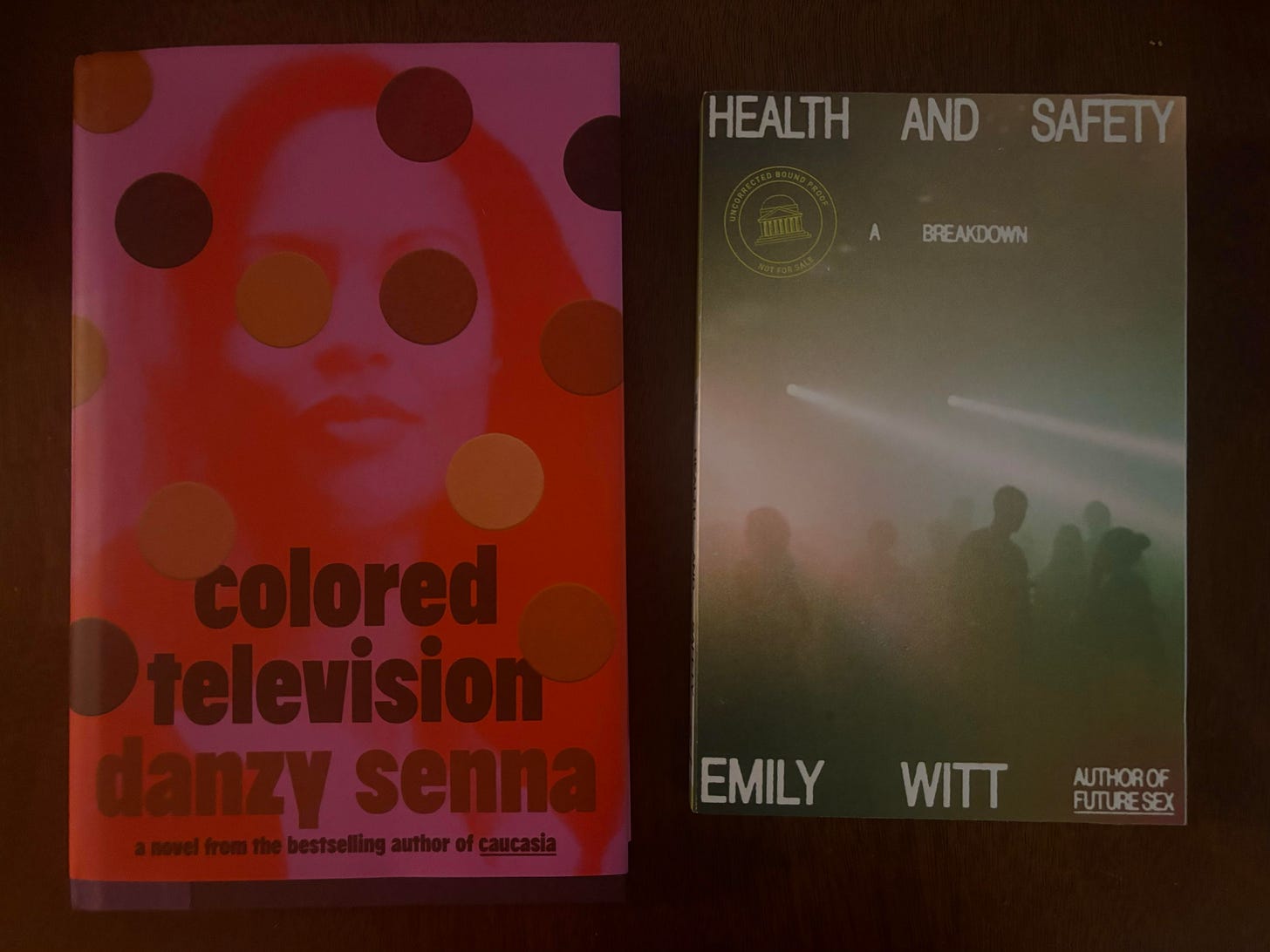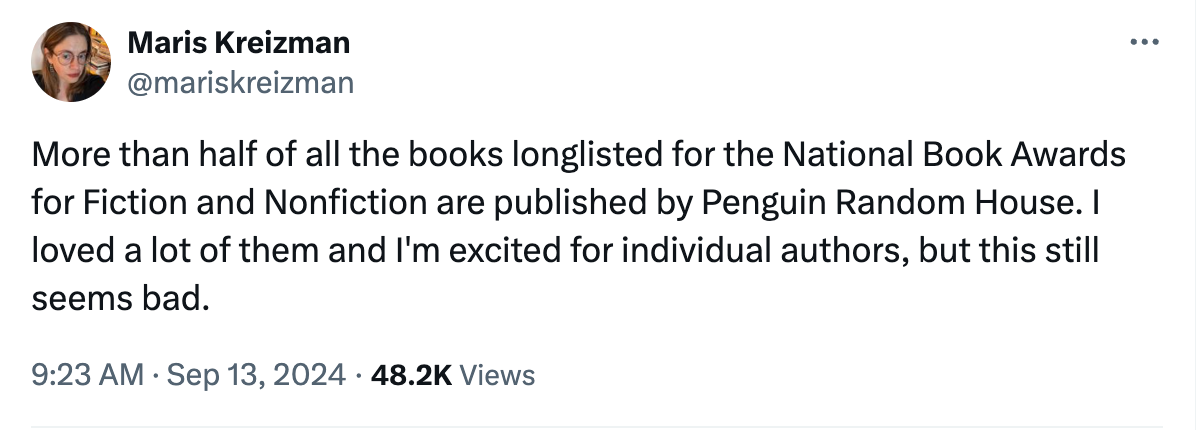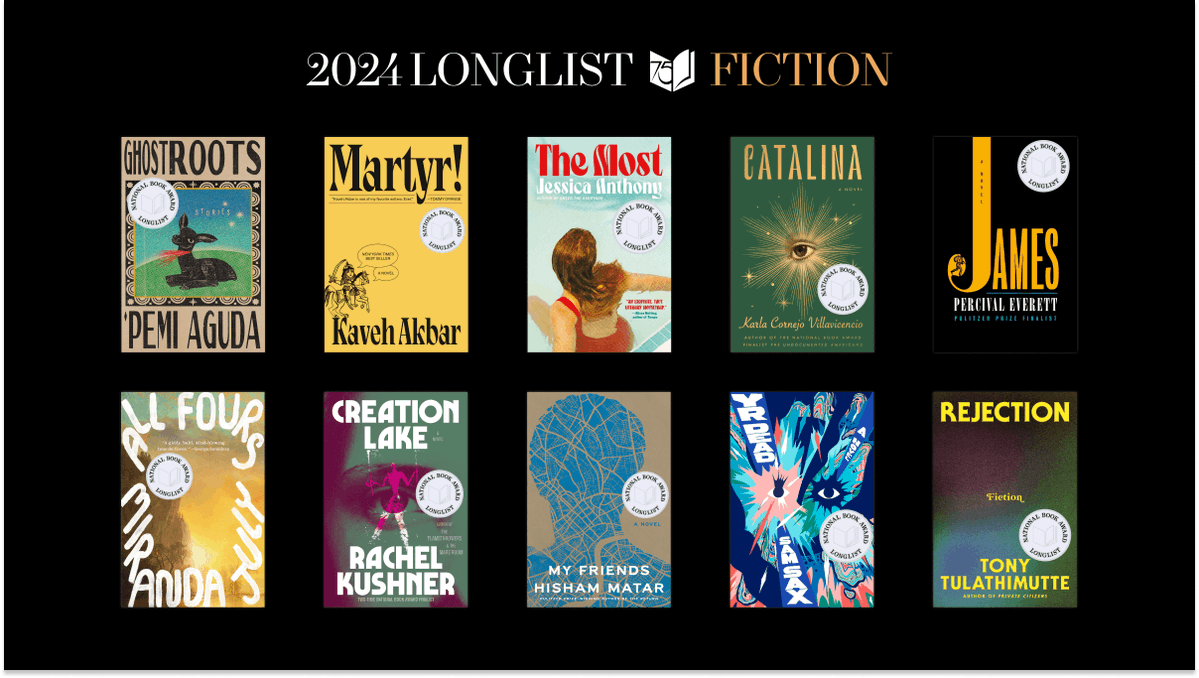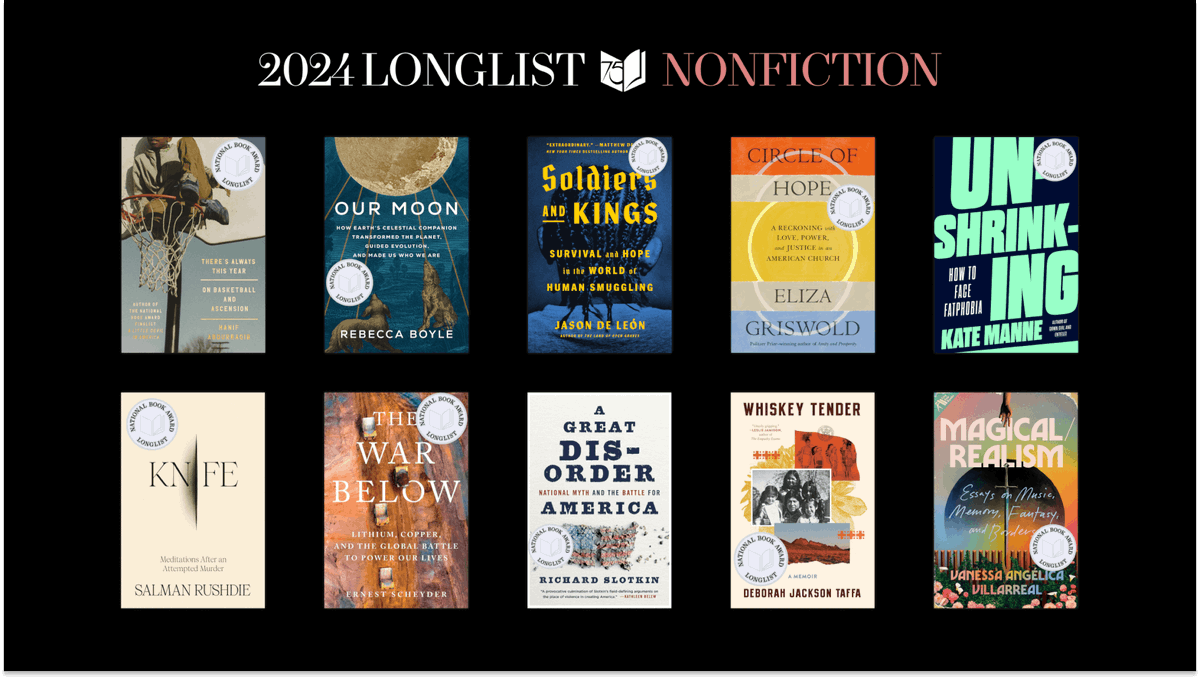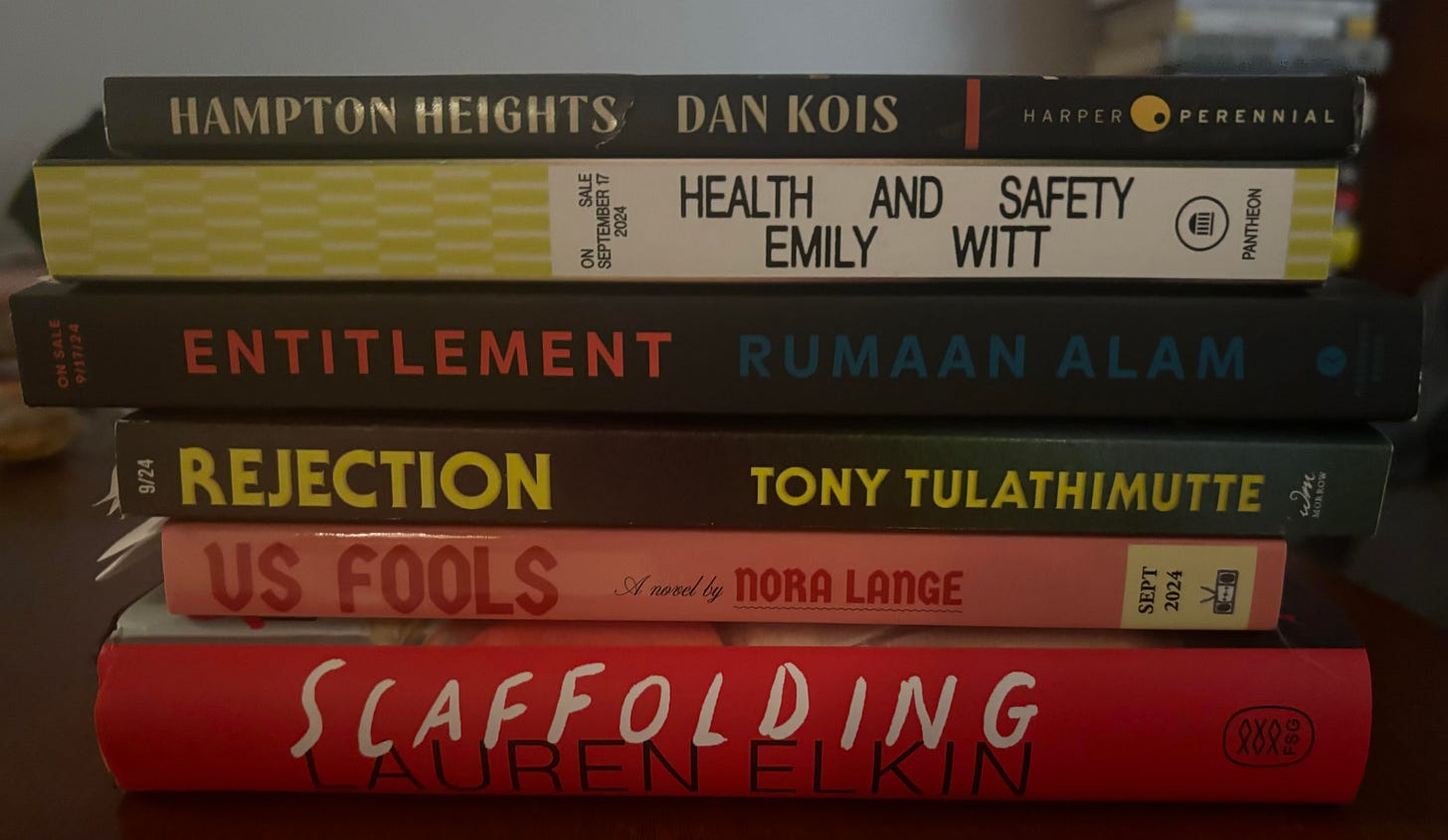The Maris Review, vol 22
I could surely choose 11 titles published solely by PRH in 2024 and have a pretty stellar year-end list. AND THAT IS A PROBLEM.
What I read this week
Colored Television by Danzy Senna
Here is a satire for me, in particular. What writer of books hasn’t, in the age of water cooler television, dreamed of ditching publishing and sitting in a TV writers room instead? Jane, our heroine, is a struggling middle aged novelist who still dreams of succeeding in a world where it’s common knowledge that no one reads novels anymore. After some devastating career setbacks, she decides she’s desperate enough to sell out. She pitches a show about a mixed race family much like Jane’s own, in which their racial makeup is a small but important part of a larger, more nuanced comedy about everyday life. Spoiler alert: it all goes horribly awry.
Danzy Senna is, much like her husband Percival Everett, a masterful satirist when it comes to matters of race and class in America. We laugh as her beleaguered heroine attempts to commodify her identity with the hope of cashing in on the latest fad in the TV world, but the deeper Jane gets into it the underbelly of Hollywood the more Colored Television reads like a horror novel.
Health and Safety: A Breakdown by Emily Witt
Emily Witt’s book started as an exploration of the rave culture (hallucinogens and techno music and warehouse parties) in which the author immersed herself in the 2010s. And that alone is fascinating. The author and I both live in New York City, are on the edges of similar social circles, and yet we live entirely different lives. When I worked at a music company many years ago, a co-worker moved to Berlin to cover techno, I was supposed to meet him to go to a rave at 4am. I never did. Emily held down a day job first as a freelancer and then a reporter for The New Yorker, and still she managed to attend all-night (and morning) parties, to experiment with drugs enough to know what time in the mid morning the LSD will hit, or when a little bump of cocaine will make staying out for 10 to 14 hours at a time more manageable. Her descriptions of the joy and perspective she found in the scene blew my normie mind.
But then the book widens in scope, and it becomes more about the nights when Witt isn’t at raves, when she’s out in the world reporting on school shootings and Black Lives Matter protests and alt right provocations. This section is so thoughtful and eloquently written that I almost enjoyed her stories about the state of mind she was in when reporting more than I did the peek into her party nights.
The latter quarter of the book in which Witt goes through a messy breakup with her troubled partner of 4 years is less compelling but still lovely. Breakups are awful, and breakups with abusive people are especially awful. The agony of being deep in the shit of it may be too tempting not to portray, but the hope is that the play-by-play becomes less important with each passing year.
On the National Book Awards Long Lists
If you’ve been reading this newsletter you know that some of my favorite recent books were nominated for National Book Awards: Creation Lake, Martyr!, All Fours, Magical/Realism. And James, not as much as everyone else, apparently (I suppose it’s like when an indie band gets picked up by a major label and puts out a hit pop song and the disgruntled longtime fan is like, “their earlier work was better”).
I am a big fan of the National Book Foundation and the work they do with the awards and beyond. I am so happy to be able to support them, and I will likely once again spend one big freelance piece’s worth of payment to attend the awards this year. They are not the problem.
PRH puts out a ton of good books every year. PRH employs lots of smart, hardworking (and overwhelmed!) people who work with an array of talented authors who deserve awards. Their authors are not the problem and their employees are not the problem.
And I absolutely know that the awards judges chose to elevate the voices they found most deserving without bias regarding publisher. They’re not the problem.
But every year since Penguin and Random House merged in 2013 I do a quick count to see how much of a hold the nation’s biggest publisher has on the wider book world (let’s continue to be thankful that PRH was not allowed to acquire S&S to become a book publishing monolith). This year 11 out of 20 National Book Awards fiction and nonfiction longlist titles are published by PRH. (Poetry and translated lit tend to be more diverse with smaller indie publishers and academic presses represented.) That is a lot. (If you didn’t know, all 3 of the books that I write about in this volume of the newsletter are published, you guessed it, by Penguin Random House.)
I also do a little thought experiment each year: Could I make a fairly well-rounded best-of-the-year list made up solely of PRH output? And the answer is yes, maybe I wouldn’t choose these particular 11 PRH books that got NBA nods, but I could surely choose books published by PRH in 2024 alone and have a pretty stellar year-end list. It would contain diversity in theme, in author biographical info and educational background, in form and style and content. And THAT IS THE PROBLEM.
What good is all of this other kind of diversity if one corporation publishes it all?
Corporate consolidation is a threat to anyone who care about books. When there are fewer publishers, both large and small, there are fewer jobs, fewer opportunities for new voices to break out, fewer places where writers can be nurtured throughout their careers, fewer places willing to take risks on ideas that diverge from the mainstream. As we’ve seen with Amazon’s ascendance and the destruction of the book world in its wake, when there are monoliths on the scene the whole ecosystem suffers.
New releases, 9/17
Hampton Heights: One Harrowing Night in the Most Haunted Neighborhood in Milwaukee, Wisconsin by Dan Kois
Health and Safety: A Breakdown by Emily Witt
Entitlement by Rumaan Alam
Rejection: Fiction by Tony Tulathimutte
Us Fools by Nora Lange
Scaffolding by Lauren Elkin
The Wolves of Eternity by Karl Ove Knausgaard, translated by Martin Aitken
A Sunny Place For Shady People: Stories by Mariana Enriquez, translated by Megan McDowell
The Third Gilmore Girl: A Memoir by Kelly Bishop
A short pan of the audiobook version of a novel I loved
Keep reading with a 7-day free trial
Subscribe to The Maris Review by Maris Kreizman to keep reading this post and get 7 days of free access to the full post archives.




